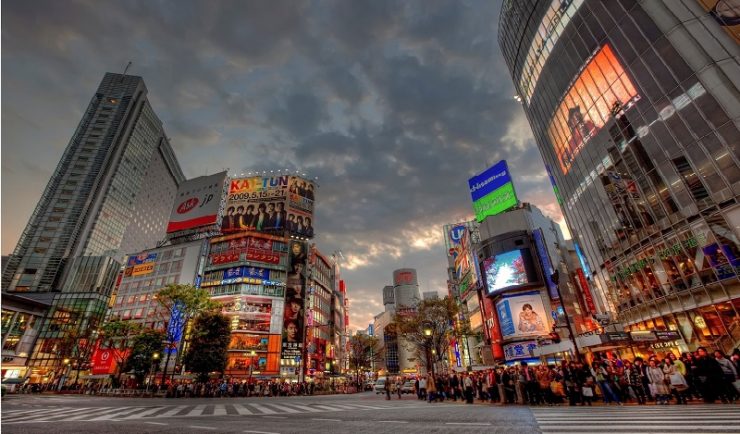TOKYO, the capital of Japan, is one of the largest cities in the world. This metropolis is one of the most popular tourist destinations in Asia. In 2019, more than 15 million people visited this city. Famous for its sprawling cityscape, it is also filled with natural havens such as Ueno Park and Imperial Palace Gardens.
Although it is friendly to tourists, foreign tourists should follow the customs of the Japanese. A DJ and English teacher from the United States, Justin Miller, said that in the 12 years he has lived in this city, he has seen tourists make the same mistake while walking around the city.
Here are six of the most common mistakes tourists make:
1. Social norms when eating out
Eating out is common for Japanese people. But there is one thing that is unusual here, and that is tipping. “Throughout the years, I’ve seen people react differently when it comes to tipping. Some people seem insulted when I try to tip them, others happily accept,” he said. It is okay to offer tips to waiters, but do not insist they accept money as that could be seen as impolite.
When dining at a restaurant in Tokyo, do not wait for the waiter to come and take your order. Instead, address the waiter out loud and say “sumimasen” or “excuse me” in Japanese. Some restaurants have a button for diners to ring the bell to get the waiter’s attention.
Politeness is a big part of Japanese culture, but some tourists go overboard and say thank you to a level that makes people uncomfortable. So, avoid thanking restaurant workers too much as many feel they are just doing their job.
2. Do not enter traditional houses or restaurants with shoes
As in many countries in Asia, it is customary in Japan to remove shoes when entering a home, certain restaurants, or ryokan (traditional Japanese hotels). Many Japanese keep the inside of buildings clean and avoid placing things that touch the ground, such as shoes, on the floor. There is often a cupboard for storing shoes near the entrance. Or put the shoes in the genkan area, which is the entrance area which is usually lower than the floor of the house, then turn the shoes towards the door. Usually, the host also provides special slippers for indoors.
In many traditional homes and restaurants, people eat while sitting on tatami, or straw mats. The bag also seldom hits the ground indoors, most cafes and restaurants will provide a small basket to store your bag.
3. Don’t talk loudly on public transport
In general, speaking loudly on trains or in public spaces is not considered impolite, the same goes for talking on the phone, especially on public transport. So, wait until you get off the train to take a phone call so as not to make other passengers feel uncomfortable.
4. Avoid crowded tourist areas
Tokyo has one of the world’s most vibrant nightlife scenes, with around 30,000 bars. But not all bars are created equal, some have become over-visited and may not be worth it. For example, Golden Gai in Shinjuku used to be a great little bar street, but now, too many tourists flock there. Find cool little bars elsewhere, like Rhythm Cafe in Shibuya.
Another popular tourist attraction is the Tokyo Skytree, an observatory with views of the metropolitan area. But it can be very boring. Better seek out the scenic views from the Mori Art Museum or the Shinjuku Metropolitan Building.
5. Don’t eat while walking
In Japan, people avoid eating while walking as it is considered impolite. So, choose to eat at a restaurant.
In restaurants, food portions are smaller and people only order what they can eat, so tourists should follow this norm when dining in Tokyo as well. Also, most restaurants do not use take-out boxes, because the law requires them to have a separate license to do so.
6. Be careful ordering vegetarian food
In Tokyo, many people do not follow vegetarianism or veganism, so it is a bit difficult to find a vegetarian restaurant. So, for travelers looking for vegan food, be sure to be specific about what not to eat. Some restaurants are happy to pay attention to the requests of their customers. [sources/photo special]
















